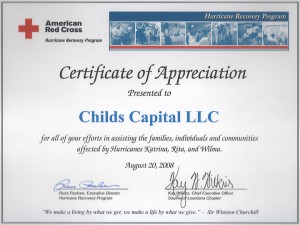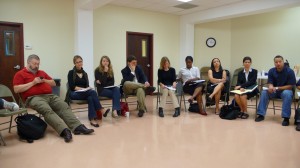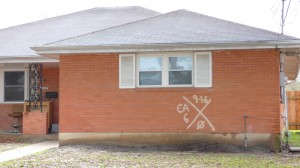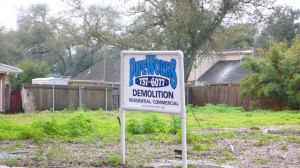As we approach the fifth anniversary of Hurricane Katrina, the American Red Cross is sharing its lessons learned in a report Bringing Help, Bringing Hope: The American Red Cross Response to Hurricanes Katrina, Rita and Wilma. With $2.2 billion in donor funds, the Red Cross provided shelter and emergency financial assistance to evacuees across thirty-one states and the District of Columbia. This assistance reached 1.4 million families or 4.5 million people, nineteen times the Red Cross’ previous record of outreach. The unprecedented scope and scale of the relief effort prompted the Red Cross to enhance planning for large-scale disasters and created new partnerships at the local, state and national levels. The Red Cross also established a national warehouse system, stocked with more than twice the amount of disaster relief supplies previously kept in inventory – enough to support 35,000 shelter residents. The number of trained disaster volunteers was increased from 25,000 to nearly 95,000, including nearly 50,000 who are on call to travel to disasters around the country. Finally, the Red Cross created web tools to connect families online after disasters. It was an extraordinary response to an unthinkable event. The image here shows the certificate we received from the Hurricane Recovery Director of the American Red Cross for our assistance to affected small businesses. We can all do something and the Red Cross report shows the results of many individual contributions.
Posts Tagged ‘Hurricane Katrina’
Red Cross Assesses 2005 Hurricane Response
Wednesday, August 18th, 2010FEMA Housing Proposals Should Motivate You
Sunday, June 7th, 2009It started with a plan for transition to those displaced by Hurricane Katrina. It ended with a proposal for temporary housing for disaster victims that should motivate people to put their own plans in place. The federal government plans to donate approximately 1,800 mobile homes to 3,400 families living in those homes since they were displaced by Katrina. The government also plans to distribute $50 million in rental vouchers to low-income trailer residents to move into targeted housing projects and will assume from the State of Louisiana the responsibility of helping those people secure permanent housing. Excess trailer homes from FEMA’s inventory (the Federal Emergency Management Agency) will be donated to state and local governments and nonprofit groups.
These actions are motivated by a desire to provide a more humane transition to more vulnerable populations that were facing FEMA’s threatened eviction action after the trailer program ended on May 1, 2009. FEMA’s housing assistance program typically provides support for 18 months. In the case of Hurricane Katrina, FEMA extended assistance for 45 months. Since many local jurisdictions in the Gulf Coast will not change their zoning ordinances to allow trailer homes, this initiative may be of limited benefit.
Meanwhile, FEMA officials told the Associated Press that they are evaluating options to house Florida hurricane evacuees in foreclosed homes should a severe storm exhaust the availability of all other housing options. This proposal is motivated by concern to stabilize disaster-affected communities rather than having evacuees disperse across the country and possibly not return, which was the experience of Louisiana in the aftermath of Katrina. Given the legal issues involved in determining ownership and rights to a foreclosed property and the uncertainty around the condition of the properties, this seems an unattractive option. Foreclosed homes are generally not maintained and lacking basic utilities. Residents of hurricane-exposed communities should begin to put their own plans in place.
The Clock is Ticking
Friday, February 27th, 2009USA Today reported this month that close to $4.0 billion in federal government rebuilding aid committed in response to Hurricanes Katrina and Rita has not been spent more than three years after the disaster. The result is that thousands of projects across the Gulf Coast remain incomplete. The aid, part of a massive recovery effort funded by the Federal Emergency Management Agency, was intended to repair or replace public works destroyed by the hurricanes. Congress has called FEMA to account for the unspent funds, but the lesson bears repeating: don’t depend on the government for disaster aid. You will be disappointed. Focus your efforts on what is within the scope of your control, such as savings and insurance.
Greater New Orleans Small Business Sustainability Summit 2008
Thursday, September 11th, 2008The third anniversary of Hurricane Katrina prompts me to reflect on the Greater New Orleans Small Business Sustainability Summit of 2008 in which I had participated earlier this year. New Orleans small businesses are dealing with issues that are all too familiar to us in Lower Manhattan: how do you reinvent your business to survive, and even thrive, in a completely new environment? How do you cope with the issues of disaster fatigue? How do you manage your frustration as you approach an anniversary date and reflect on how little progress has been made? The Summit provided a great forum for us to learn from one another.
On the one hand, it was remarkable to see how much we had in common. The recovery effort in New Orleans was impeded by the inability of the federal and state governments to agree to a common framework, and the constantly changing rules – a situation with which we in Lower Manhattan are all too familiar. Carmen Sunda, the Director of the New Orleans Small Business Development Center, took me on a tour of some of the affected areas. I have attached a few of my pictures. Even three years after Hurricane Katrina struck, the FEMA trailers and demolition signs are everywhere. And yet, I could see the resilience and commitment of those who participated in the small business neighborhood summit.




